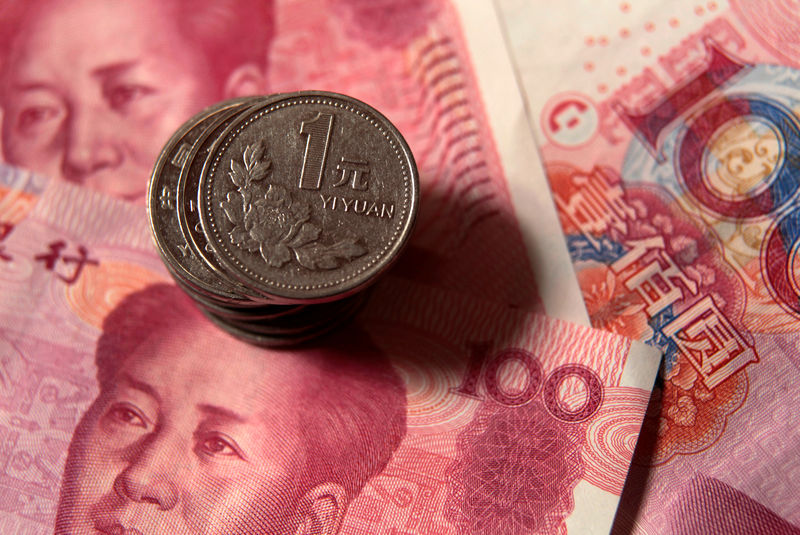By Ambar Warrick
Investing.com-- China’s yuan fell on Friday following mixed signals from business activity data, while Asian currencies headed for steep monthly losses as a hawkish Federal Reserve and a robust dollar sparked sharp outflows.
The onshore yuan fell 0.1%, while the offshore yuan shed 0.5% after official Chinese PMI data showed the country’s manufacturing sector unexpectedly grew in September. But a private survey showed that a decline in the manufacturing sector deepened in the month, amid continued headwinds from COVID lockdowns.
China’s non-manufacturing PMI also grew at a slower pace in September than the prior month, indicating that the world's second-largest economy was still under pressure.
The offshore yuan hit a record low this week, as a widening gulf between international and local rates saw traders dump the currency. It was also set for a 3% loss in September, its seventh straight month of declines this year.
The onshore yuan was set for a 3.5% loss in September. Still, it is likely to gain in the near term as the People's Bank of China undertakes measures to support the beleaguered currency.
Broader Asian currencies traded flat on Friday as the dollar retreated further from a 20-year peak. The dollar index fell 0.1% to 112.17, while dollar index futures fell in a similar range.
But the greenback was also set to rise nearly 3% in September, its fourth straight month of gains, as it continued to benefit from rising rates and safe haven demand.
A hawkish Fed, rising Treasury yields, and a worsening economic outlook put most Asian currencies on course for deep declines in September.
The South Korean won hovered around 13-year lows and was the worst-performing Asian currency in September, with an over 6% loss. Weakening economic trends in major trading partner China, coupled with rising inflation and commodity prices have dented the outlook for the South Korean economy.
Data on Friday showed production in South Korea’s massive industrial sector far shrank more than expected in August, boding poorly for Asia’s fourth-largest economy.
The Japanese yen fell 0.2%, taking little support from better-than-expected industrial production and retail sales data. The currency was also down nearly 4% in September.
The Indian rupee fell 0.3% to a near-record low ahead of a widely-expected interest rate hike by the Reserve Bank of India. The bank is expected to hike rates by 50 basis points as it moves to curb inflation and support the rupee.
